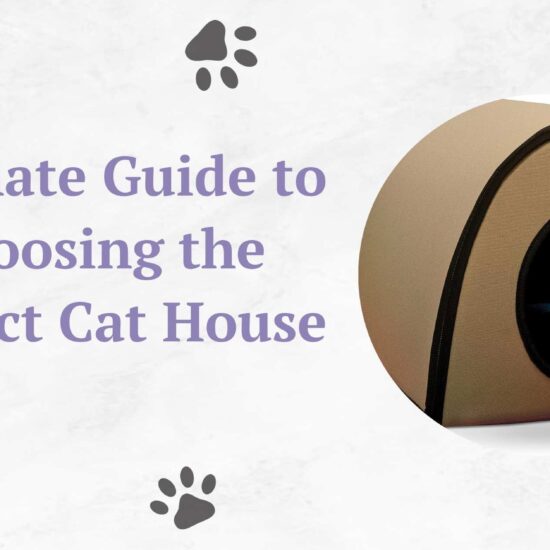Wondering why your cat has suddenly stopped using the litter box? While health issues are a common cause, there are surprising non-health reasons that could be at play. Stress, changes in the environment, a dirty litter box, or negative associations with the box can all lead to this behavior. Identifying and addressing these factors can help restore your cat’s litter box habits. From adjusting their environment to maintaining cleanliness, there are several strategies you can employ. Explore our guide to understand the non-health reasons behind your cat’s behavior and find effective solutions to keep your feline friend happy and using the litter box consistently.
Table of Contents
What non-health factors make a cat stop using a litter box?

Changes in the cat’s environment are one of the main reasons for cat litter box aversion that aren’t tied to health. Cats like things to stay the same, so when their surroundings change, it can make them anxious and stressed. This stress can appear in many ways, such as having litter box issues. Your cat might get nervous when you move to a new house, rearrange the furniture, or bring new pets or people into the house.
Cats may avoid their litter box as a way to show how upset they are when they are stressed. It is essential to give your cat a stable, predictable setting. Keep rapid changes to a minimum and give your cat many safe, quiet hiding places. Keeping the same daily routine can help stressed people deal with cat litter box problems.
How Litter Box Location and Accessibility Affect Cats?

Placing the litter box affects how often your cat uses it. Your cat may become cat litter box averse if you put it somewhere noisy, busy, or complicated for them to get to. Cats like to go to the toilet in quiet, private places. If you put the litter box somewhere with a lot of foot traffic or near loud machines, they might not use it.
Another critical factor is how easy it is to access. Your cat might not use the litter box if it requires climbing stairs or jumping over things to get there. This is especially important for older cats or cats that have trouble moving around. The litter box should be in a place that is easy to get to and offers privacy and comfort.
How is Litter Box Cleanliness and Type useful?

As cats are usually clean, a litter box that needs to be cleaned can be very off-putting. As the saying goes, cat stops using litter box because it’s not clean enough. If you don’t clean the litter box often, your cat might go to a better place to go to the bathroom. To keep the litter box clean and comfortable for your cat, you should empty it daily and change it often.
Your cat may or may not use the litter box or the type of litter. For certain felines, the litter box’s scent and texture are quite important.. If you change the litter, it might cause litter box issues. In the same way, the litter box’s size and shape are essential. Your cat might like a box that is just a little or has too high ends. Trying out different litter and litter boxes can help you determine your cat’s likes and stop cat litter box problems.
Note: There might be affiliate links mentioned here. We may receive a commission if you purchase a product through an affiliate link. There is no additional charge for you. Please do your own research before making any online
Behaviour in the Territories

Another odd rationale for cat litter box aversion is cats enjoy their own space. Cats are very territorial; if they think someone is getting into their area, they may urinate outside the litter box to inform you. This happens often in homes with more than one cat, where cats may compete for room and food.
Please ensure enough litter boxes for all your cats so they don’t fight over territory. You should have an extra litter box if you have more cats than cats in your home. Putting litter boxes in different places can also help ease the stress and give each cat a sense of control over their bathroom area.
Negative Associations and Experiences of litter box usage by cat

A cat litter box aversion could develop if a cat has a history of negative experiences using the litter box. If the litter box was scary for your cat in the past, it might not want to use it now. This could mean being scared by a loud noise, being chased by another pet, or even having an accident that hurt or made them feel bad.
To fix this, try to make the area around the litter box as happy and stress-free as possible. When your cat uses the litter box, give it treats, praise, and other positive feedback. If something really bad happened to your cat, you might need to slowly return it to the litter box and help it make new, positive connections with it.
Conclusion
Figuring out the reasons for non-healthiness for cat litter box aversion is essential for fixing the problem and ensuring your cat is healthy. Your cat’s litter box habits can be affected by changes in the environment, the position of the litter box, how clean it is, territorial behavior, and bad associations. By taking care of these things, you can make your cat feel safer and more at ease, making them more likely to use their litter box regularly. Contact the Furry Talez, who is committed to giving you the best cat care tips that will help your cat’s litter problem. By figuring out and fixing why your cat stops using the litter box, you can make your home a more pleasant and clean place for you and your cat.
FAQs
What non-health reasons might cause my cat to stop using the litter box?
Stress, environmental changes, a dirty litter box, and negative associations with the box.
How can stress affect my cat’s litter box habits?
Stress can cause behavioral changes, leading your cat to avoid the litter box. Identifying and reducing stressors can help.
What environmental changes might impact my cat’s litter box use?
New furniture, moving to a new home, or changes in the household can disrupt your cat’s routine and litter box use.
How important is cleanliness for my cat’s litter box?
Cats prefer clean litter boxes. Scooping daily and changing the litter regularly can encourage consistent use.
How can I address negative associations with the litter box?
Ensure a positive experience by keeping the box clean, placing it in a quiet area, and avoiding loud noises near it.












